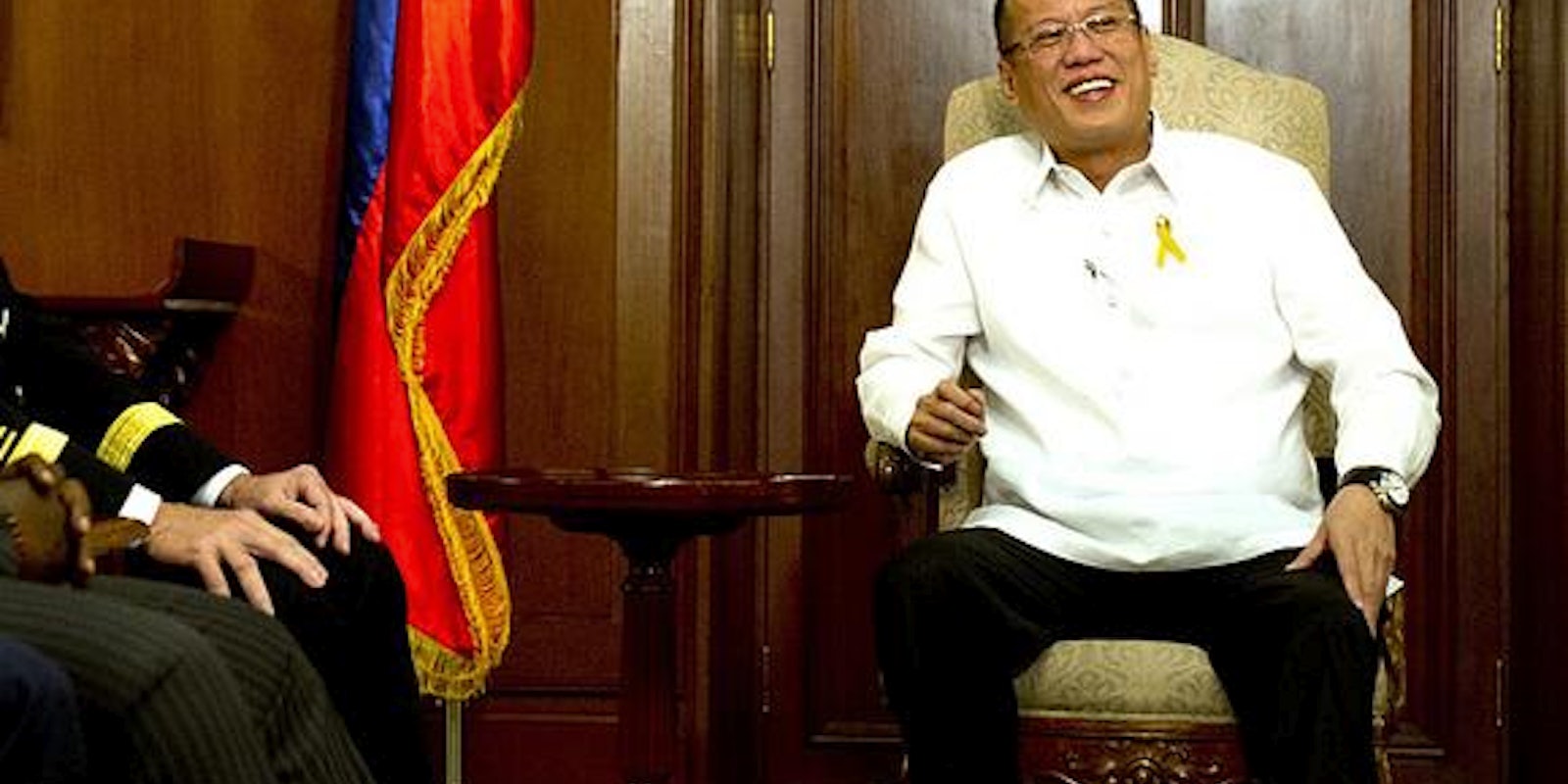Over the last week, Anonymous hackers have taken down or defaced more than a dozen Filipino government related websites. The so-called “Bloody Monday” attacks are in retaliation against a new cybercrime law that critics say threatens Internet freedom.
Using a new form of encrypted instant messenger called Crypto.cat, the hackers have hit the Intellectual Property Office of the Philippines and other sites with denial-of-service attacks, which make a website or service unavailable usually by loading the site or service so much that it becomes overwhelmed and crashes. They have also hacked the official Twitter account for the Department of Social Welfare and Services.
The Cybercrime Prevention Act of 2012 was signed by Filipino President Benigno Aquino III on Sept. 12 in what he called a “strong message to the world that the Philippines is serious about keeping cyberspace safe,” Global Voices reported. The new law criminalizes online activity like cybersquatting, cybersex, and libel. Offenders can face fines between of 50,000 Philippine pesos ($1,200) to 1 million pesos ($24,000) and six months to 12 years of prison time.
The law has come under extreme scrutiny by media watchdogs, including the the Philippines’ National Union of Journalists, which said it “betrays this administration’s commitment to transparency and freedom of expression—nil.” Similar sentiments were shared on Twitter using the hashtag #notocybercrimelaw, which has been mentioned more than 112,000 times since Monday.
At this point, the negative reaction to the law is primarily an issue of its libel provisions.
In contrast to the U.S., in the Philippines, libel (published statements damaging to a person’s reputation) is not merely a civil matter, but is also a criminal offense. In other words, where in the U.S., libel can get you a hefty fine, in the Philippines, it can get you thrown in jail. The UN Human Rights Council has called existing libel laws in the Philippines excessive, and the laws have been a frequent tool of the Filipino government to stifle freedom of the press, according to the National Union of Journalists.
The Cybercrime Prevention Act would extend these laws to anyone with a computer, critics say.
“The Cybercrime Prevention Act of 2012 is the most notorious act ever witnessed in the cyber-history of the Philippines, and the language of the bill is cunningly designed to make you think it only applies to individuals who are deep in cyber-technology and doesn’t apply to everyone,” Anonymous wrote in a Pastebin document circulating around Twitter. “It is just so disappointing that our government, in adopting our 80-year-old antiquated libel laws to the Cybercrime Law, again seems to have retarded our march with the rest of the world with respect to giving full force to the people’s freedom of expression.”
A Change.org petition called “Junk the Cybercrime Law” has collected 69,000 digital signatures and asks the government to abandon the law because it “seemingly reflects the Aquino administration’s policy of neglect.” Other people and organizations including the Philippine Internet Freedom Alliance have protested against the law by blacking out their blogs.
“This section on libel has grave implications for freedom of speech on the Internet. People who post on Facebook, Twitter and write comments in news websites can be sued for libel in much more insidious ways than those in the traditional news media,” journalist Raissa Robles blogged. “I am all for making people personally accountable for what they post online, but not this way.”
